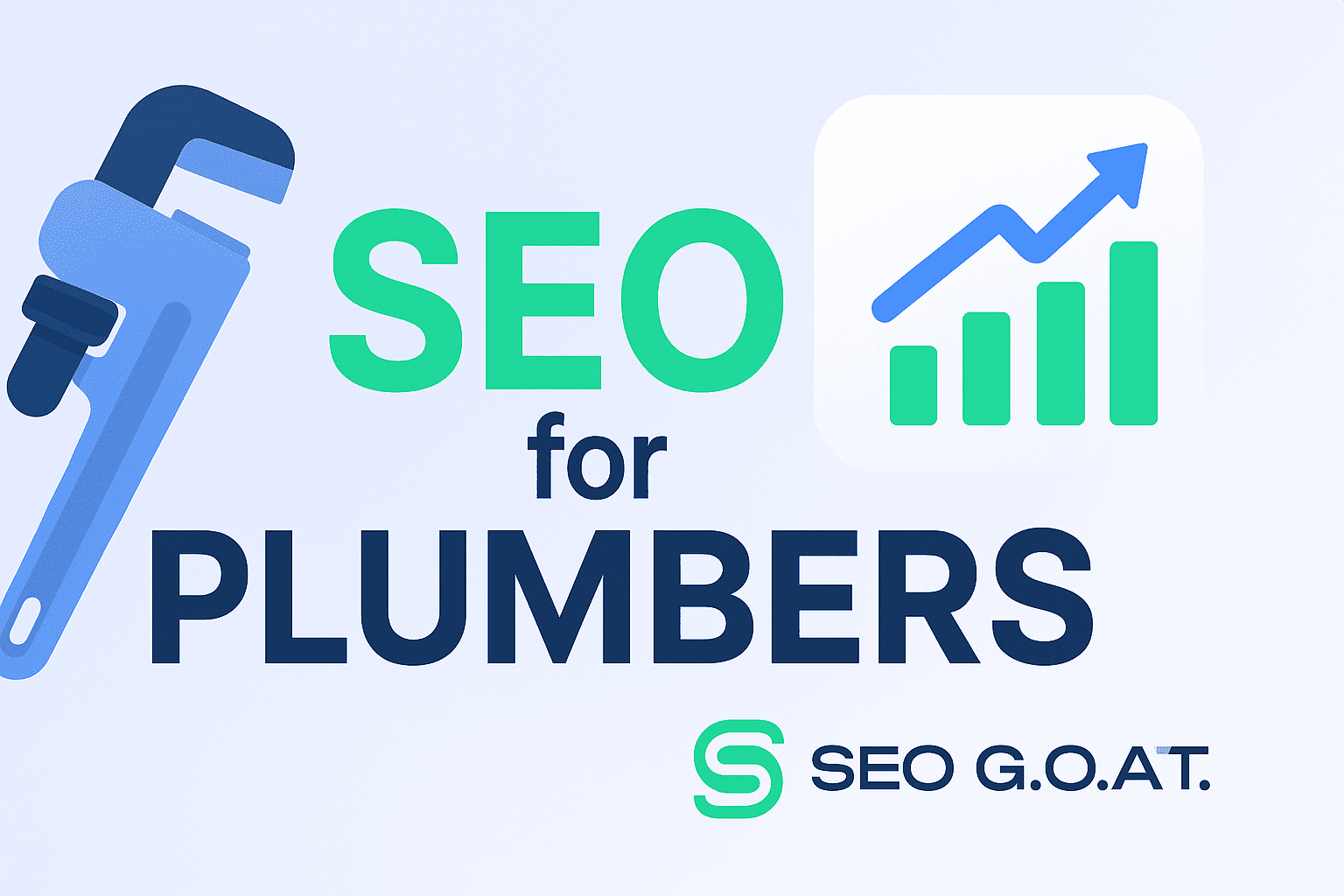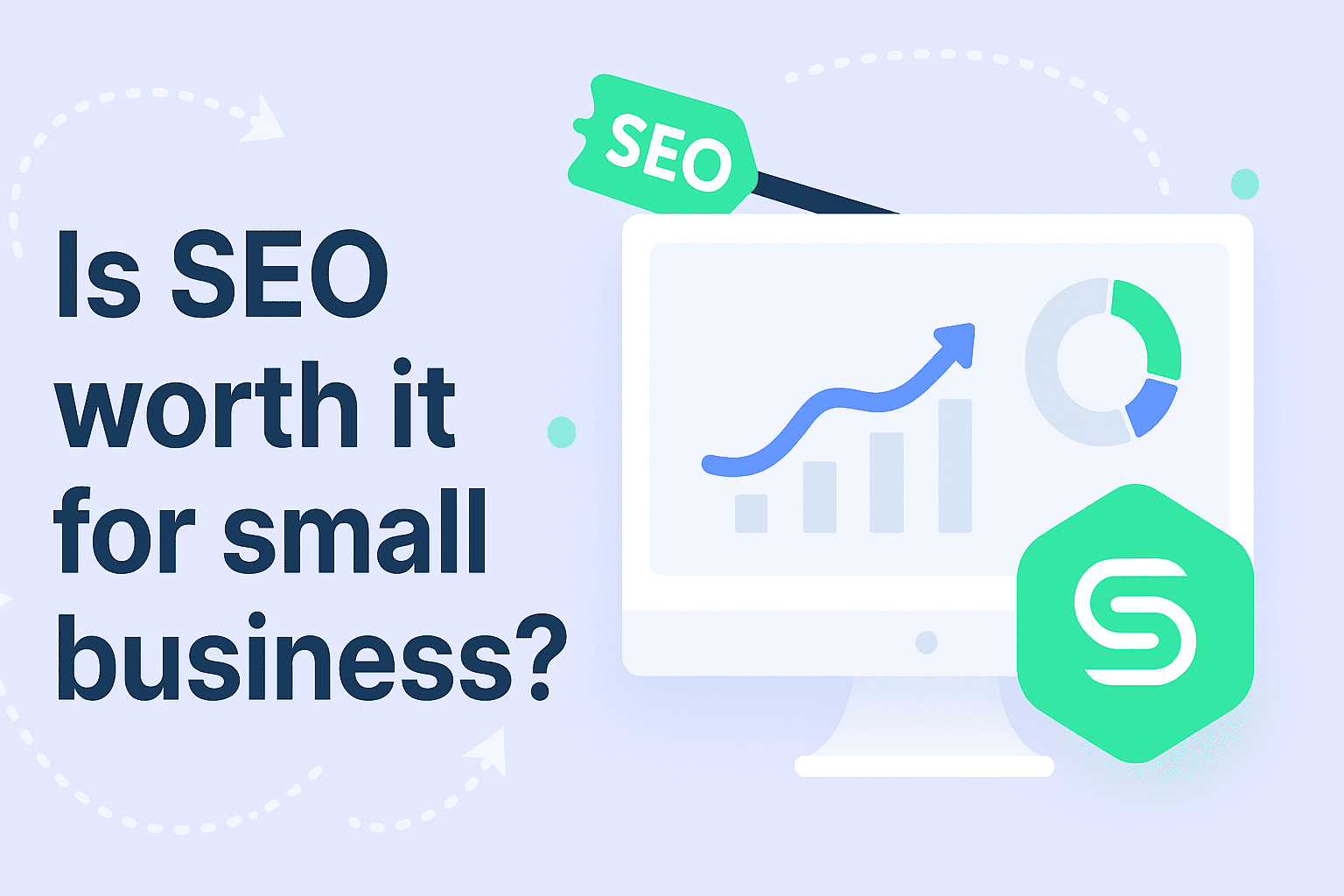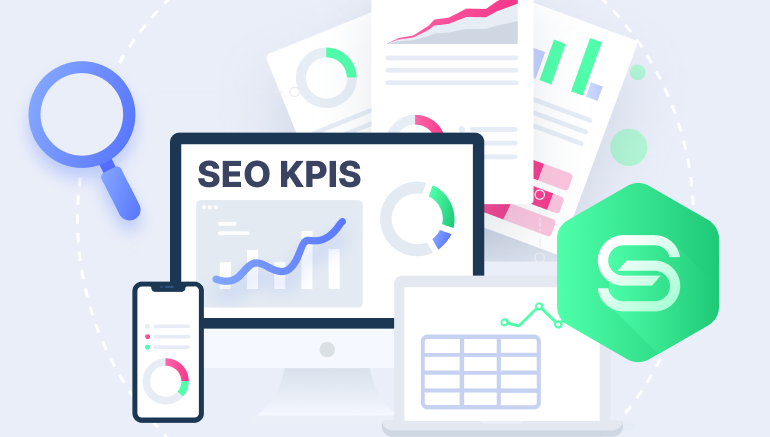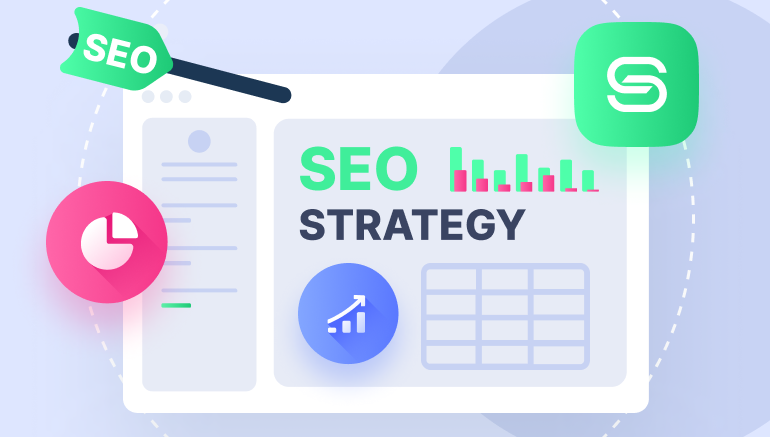SEO for Startups: Step-by-Step Guide for Growth in 2024


According to BrightEdge Research, 68% of online experiences begin with a search engine. This means that people google everything they need: products, services, solutions, and all kinds of queries. And here’s the best part: SEO leads have a 14.6% close rate as compared to outbound leads at 1.7%.
So why do around 80% of startups fail in their first year? It’s poor marketing, lack of demand, and intense competition. All these are factors significantly influenced by SEO. Read on to understand the importance of SEO for startups and get a step-by-step guide on leveraging its benefits.
| Trying to promote your startup? Team up with SEO G.O.A.T. |
Why Is SEO Important for Your Startup?
You might be wondering: “Why do I even need SEO for my startup?”. It’s simple: you need it to keep your idea going and generating income. People won’t buy if they can’t find your product. But SEO turns the tables and makes everything possible.
Long-Term Success Strategy
SEO is a strategic approach that works for the long term. By investing in SEO from the start, you lay the foundation for future success. The results of SEO are long-lasting and continue to yield benefits over time, unlike paid traffic that requires continuous investment.
You will typically see the results of your investment within 3–6 months. This will include keyword rankings, your website’s positions on the SERPs, and traffic. 50% of Google users click on their results within 9 seconds of searching, with only 9% moving further than the first search results page.
Cost-Effective Investment
SEO is one of the most cost-effective types of traffic in the long run. By allocating part of your budget to SEO, you can achieve a steady stream of organic traffic, which will eventually pay off the investment. This is crucial for startups, where every dollar needs to be maximized.
The most common SEO budget ranges between $1,000 and $5,000 per month. This includes conducting an audit, generating content, acquiring backlinks, and working on your website’s technical elements. Your startup’s ROI will usually be around 200%+ with this investment.
Complementary Marketing Approach
SEO should be one of the key elements of your marketing strategy, not the only one. It works well in conjunction with other traffic acquisition channels, such as paid advertising. Organic traffic helps gather audiences in Google Analytics 4 and Facebook, which allows for effective retargeting campaigns.
Companies and startups usually use:
- Social media;
- Websites & blogs;
- Video marketing;
- Email marketing.
According to HubSpot and our personal experience, these are the best marketing channels in 2024. They’re basically an evergreen source of potential leads.
Competitive Advantage
The cost of paid traffic can be very high for SaaS, fintech, and other highly competitive industries. SEO helps reduce these costs by providing a stable flow of targeted traffic without the need to constantly increase your advertising budget. Every dollar counts.
Content Creation and Traffic Generation
SEO helps in creating valuable content for your blog that is both useful to users and attracts traffic to your site. This is a key part of growing your brand and increasing your customer base. High-quality articles generate tons of top-tier traffic, with almost every visitor being a potential lead.
Insider Tips from SEO G.O.A.T.
Based on our many years of work experience and hundreds of successful case studies, we can share some expert tips and hidden benefits. These are often overlooked by most teams due to their inexperience. You’ll definitely change your mind after seeing them.
SEO Helps Create a Business Plan
Conducting SEO niche research provides valuable data on geographic regions, search volumes for your product, and relevant keywords for advertising. This allows you to include detailed analysis in your business plan and make informed decisions about launching your project.
SEO Attracts Investments
You can use link building to publish articles about your startup on authoritative niche websites, increasing brand awareness and attracting investments in various funding rounds. Many successful startups started by promoting themselves on Forbes and other high-quality websites, getting global attention and coverage.
Building a Positive Reputation
SEO, particularly SERM (Search Engine Reputation Management), helps create a positive image of your brand through the publication of review articles. This increases conversion rates from other advertising sources and enhances trust in your startup.
How to Start Doing SEO for Your Startup?
Let’s check out the steps required to start doing SEO for your startup.
1. Understanding Your Current Stage & Needs
The first step in planning your SEO strategy is to figure out what your startup needs are. Are you in the preliminary analysis phase, requiring full promotion, requiring review article placements, or something else entirely? Knowing this will guide your approach.
Usually, startups need the following services.
| Preliminary Analysis and Research Market and competitor analysis; Keyword research; Audience insights. | Off-Page SEO Link-building strategy; Guest posting and outreach; Social media integration. | Technical SEO Website speed optimization; Mobile-friendliness; Site architecture and URL structure. |
| SEO Strategy Development Comprehensive SEO plan; Goal setting and KPIs; Budget allocation. | Local SEO (if applicable) Google My Business setup; Local citations and directory listings; Reviews and ratings management. | Analytics and Reporting Setup of Google Analytics and Google Search Console; Regular performance tracking; Reporting on KPIs and adjustments. |
| On-Page SEO Technical SEO audit; Website optimization (meta tags, headers, images, etc.); Content creation and optimization. | Content Strategy Blog content planning and creation; Evergreen content development; Content calendar. | Reputation Management Online review monitoring; SERM (Search Engine Reputation Management); Crisis management strategies. |
Most steps include specific software that helps experts provide their services. We covered the best SEO software for agencies in our previous article. You can check it out to see what your potential partners will use to support your SEO.
2. Choosing a Partner
You’ll have to decide between hiring an in-house SEO specialist and an experienced SEO agency. Typically, agencies are the better choice to avoid financial and time-related risks. You’ll get a team that offers full-scale SEO services that can be fully tailored to your needs.
For example, SEO G.O.A.T. is your perfect choice for link building, SERM, SEO strategizing, and all other SEO-related services. Our team knows this industry from A to Z, allowing you to get the best backlinks from authoritative websites in your niche.
| Agency | In-House Specialist |
| Advantages: Access to a team of experts with diverse skills and specializations; Proven strategies and experience with various industries and projects; Scalability and flexibility in service offerings; Often more cost-effective compared to hiring a full-time specialist; Use of advanced tools and technologies for SEO analysis and reporting; Regular updates on industry trends and algorithm changes. | Advantages: • Full-time dedication to your project; • Deep understanding of your brand and industry; • Immediate availability for urgent tasks and quick adjustments; • Direct communication and easy collaboration with other team members. |
| Disadvantages: Potential for less direct control and communication; May require time to align with your brand and business goals; Risk of working with an agency that overpromises and underdelivers; Possible long-term commitment in the form of contracts. | Disadvantages: Potentially higher cost due to salary, benefits, and training; Limited exposure to diverse SEO strategies and trends; Dependency on the skills and experience of one individual; Possible need for additional hires to cover all aspects of SEO (e.g., technical SEO, content creation, link building). |
We recently shared how to outsource SEO to reduce costs and partner with top talent. Check out the latest article on SEO G.O.A.T.’s blog.
3. Setting Your Budget and KPI
Determine your budget and clearly define your KPIs. Although SEO results cannot be guaranteed due to numerous factors influencing Google rankings, it is essential to understand what you aim to achieve from your SEO efforts. Setting realistic KPIs helps in tracking progress and measuring success.
Here are some possible KPIs to consider.
| Organic Traffic Number of visitors from organic search; Growth rate of organic traffic over time. | Backlinks Number of new backlinks acquired; Quality and domain authority of referring sites; Growth rate of backlink profile. | Conversion Rate Conversion rate from organic traffic; Number of leads, sign-ups, or sales generated from organic search. |
| Keyword Rankings Number of keywords ranked in the top 10, top 20, and top 50; Improvement in rankings for target keywords. | Click-Through Rate (CTR) CTR for organic search results; Improvement in CTR over time for specific pages or keywords. | Bounce Rate Bounce rate for organic visitors; Improvement in bounce rate over time. |
| Dwell Time Average time spent on the site by organic visitors; Improvement in dwell time over time. | Pages Per Session Average number of pages viewed per session by organic visitors; Growth in pages per session over time. | Local SEO Performance (if applicable) Number of local searches resulting in visits; Improvement in local search rankings; Number of reviews and overall rating. |
| Technical SEO Metrics Site speed improvements; Mobile usability scores; Crawl errors and indexing issues resolved. | Content Engagement Number of shares, likes, and comments on blog posts; Engagement metrics for content (e.g., time on page, scroll depth). | SERP Features Number of featured snippets, knowledge panels, or other SERP features; Improvements in SERP feature appearances over time. |
4. Long-Term Budget Planning
SEO is a long-term process, so it’s essential to allocate your budget wisely over the next quarter, half-year, or even a full year. Plan to set aside a portion of your budget specifically for SEO activities over six months to a year to see substantial results from this marketing channel. This long-term investment ensures sustained growth and better ROI from your SEO efforts.
You can expect the following costs in your budget.
| Small Startups $1,000 to $3,000 per month. | Mid-Sized Businesses $3,000 to $6,000 per month. |
| Large Enterprises $10,000+ per month. | One-Time SEO Projects or Audits $5,000 to $30,000 depending on the scope. |
| Hourly Rates for SEO Consultants $100 to $300 per hour. | |
Best Strategies for Startup SEO
1. When you don’t have a website
Start by ordering an SEO strategy. This is the perfect stage to start your SEO efforts. By ordering an SEO strategy, you can identify potential growth areas and create a long-term marketing strategy for the upcoming year. This strategy will also help you shape your business plan effectively.
2. When you got initial funding
After raising funds, it’s important to allocate some of your budget to SERM. This will help create a positive brand image on Google, which you should start as soon as your website is live. Also, it’s important to optimize the entire page and find out what needs to be done to make a website. Begin your link building efforts once your website is launched.
In short, here’s what you should do:
- Allocate budget for SERM: create a positive brand image on Google;
- Full on-page optimization: perform comprehensive on-page SEO and obtain technical requirements;
- Start link-building: begin as soon as the website is launched.
3. When you just launched a website
Establishing a positive brand reputation on Google is important once your website goes live. Investing in full managed SEO services, which include backlink acquisition and continuous SEO management, will ensure that your website gains the necessary visibility and traction.
- Implement SERM: establish a positive brand reputation on Google;
- Full managed SEO services: include link building and continuous SEO management.
4. When your website has traffic
A deep audit is essential for an existing website with some traffic to avoid losing the progress and traffic you’ve already gained. Continuing with SERM to maintain a positive brand reputation is crucial. Additionally, you should consider implementing full managed SEO services, which include ongoing link-building and SEO management to improve your website’s performance.
- Conduct a deep audit: ensure you don’t lose existing work and traffic;
- Continue with SERM: maintain a positive brand reputation;
- Full managed SEO services: Include ongoing link-building and SEO management.
Practical SEO Tips for Startups
Based on our experience of many years, we gathered the knowledge of our experts at SEO G.O.A.T. to share some practical tips on working with SEO for startups. Let’s take a closer look.
How to work with agencies and freelancers
First of all, you should know where to find both agencies and freelancers to avoid getting scammed.
For freelancers, you’ll typically use:
- Upwork;
- Fiverr;
- Job search websites.
For agencies, it’s best if you use:
- Clutch.co;
- SEMrush Agency Partners;
- DesignRush, and others.
Be cautious of those who guarantee 100% results, as they might resort to using bot traffic to inflate metrics. It’s impossible to guarantee anything in SEO due to its volatile nature and unpredictable algorithms.
| Want to grow your SEO? Partner with SEO G.O.A.T. for high-quality SEO services! |
Steps to complete before collaboration
Before starting work with an SEO provider, order an SEO audit or strategy to understand their approach and forecasts. Clarify the type of link building they will use and the format of reports, including the frequency of updates and who will communicate with you.
We recommend using guest posting as the best approach for generating high-quality and relevant backlinks. Also, SEO G.O.A.T. provides an intuitive dashboard with detailed reports on your website.
Brief preparation steps:
- Order an SEO audit/strategy;
- Confirm link-building methods (recommend guest posting);
- Clarify report format and communication.
KPIs to consider
It’s essential to establish clear KPIs depending on the services provided. SEO typically influences traffic, but you can also track additional metrics such as installations, purchases, and subscriptions.
If we speak of guest posting, you can consider: referral traffic, domain authority, number & quality of backlinks, social shares, engagement metrics, brand mentions, lead generation, and many others.
Possible general KPIs:
- Traffic;
- Installations;
- Purchases;
- Subscriptions.
What budgets do you need
Quality SEO services come at a cost. Typically, a budget of $1000/month is unrealistic for full-scale SEO services. For small startups, average costs start at $3000/month, with more extensive services ranging from $5000-$6000/month. Plan your budget for at least six months to ensure sustained SEO efforts.
Budget Considerations:
- Minimum realistic cost: $3000/month for small startups;
- Average SEO prices: $5000-$6000/month;
- Plan for at least six months of budget (e.g., 6 * $5000-$6000).
How Can SEO G.O.A.T. Help Your Startup?
SEO G.O.A.T. is your reliable partner for full-stack SEO services. We can help you with making an SEO strategy, SERM, link building, and many other services to ensure your website ranks on the first page of the search results. You’ll work with real professionals who value your results.
For example, with link building, our team helps you cover:
- Finding and choosing the best relevant websites for placement;
- Preparing the content for placement;
- Discussing all the terms and arrangements with webmasters;
- Publishing the content and monitoring results.
You can start working with SEO G.O.A.T. by booking a free consultation with our experts. Read more about our pricing packages and what they’ll bring to your startup. Bulk orders get special terms.
| Team up with a reliable backlink provider. Boost my SEO now! |




